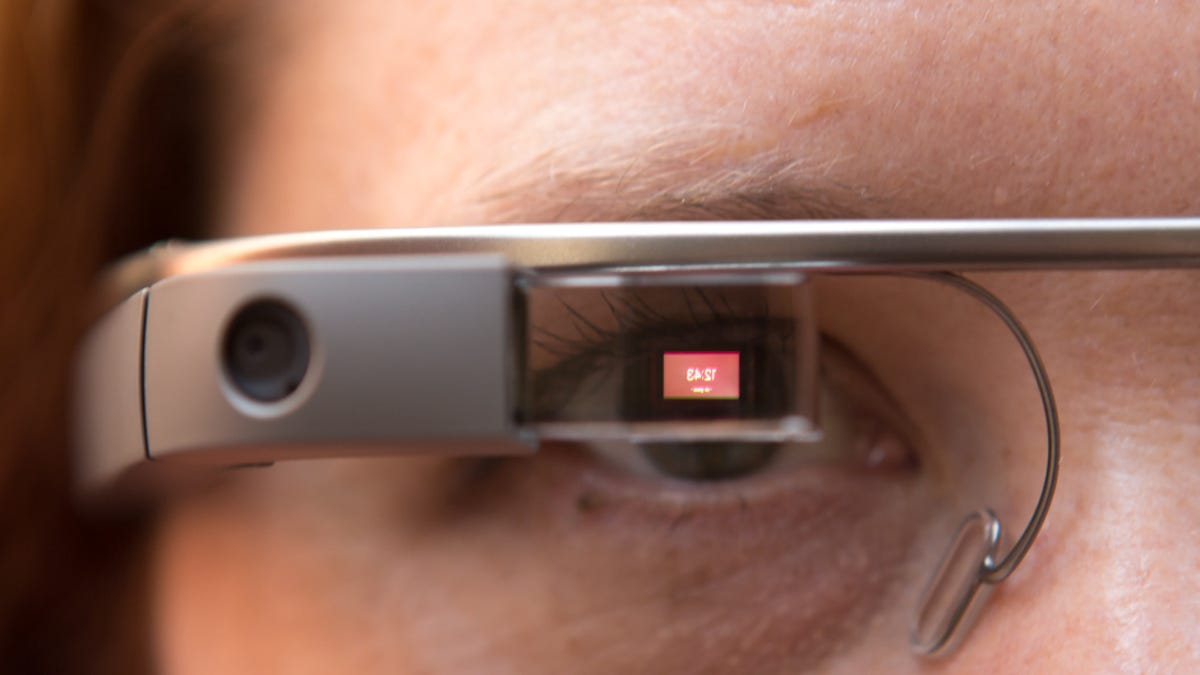The 11 Google Glass improvements we hope Google I/O delivers
The future's here, in prototype form -- but it's a long way from finished. Here's our best hope for the immediate future.

Last year, Google I/O -- Google's annual event for the developer community -- treated us to skydiving, arena-cycling Google Glass wearers, and a whole crazy landscape of wearable tech. This year, Glass is finally in the hands of thousands of developers, tech journalists, and other early adopters, but as we head back to another Google I/O, there's a lot about Glass that's yet to be discovered.
The present of Google Glass is intriguing, embryonic, and very bare-bones. Here's what I hope we see in the near future, starting this week.
Apps, apps, apps
There are precious few actual apps for Google Glass. Expect that to change very soon as developers take cracks at making killer ideas for Glass. You could argue that Glass currently lacks a killer app at all, other than its wearable eye-level camera. It's up to smart software developers to figure out how Glass hardware can be more than what it is. The apps so far are fleeting, and not representative of Glass' potential.
Details on next year's consumer hardware
Will the look of Google Glass change next year? How affordable will it be, as opposed to the $1,500 it currently cost those lucky enough to get one? Hopefully we'll get a peek at how the next Glass designs will improve upon the somewhat cumbersome non-foldable frame. I'd love to see the Warby Parker Glass.
More iOS integration
Working within Apple's ecosystem may be a lot more challenging for Google than working from within Android, but Google already has a large network of interconnecting iOS apps. Could a MyGlass iOS app be forthcoming, giving iPhone users a comparable experience (GPS-enabled turn-by-turn directions, for instance) to what's already possible on Android? Or, will it work independently of an app at all? You can pair Glass to iOS now, but it doesn't enjoy GPS connectivity. Yet.
Glass-to-Glass communication
Glass works with phones, PCs, and Wi-Fi hot spots, but we haven't gotten a sense of Glass communicating with other Glass headsets; maybe that's because there are too few of them around, but I can't help but wonder what a cloud of Glass-wearing people can produce. A critical mass of Glass will be at Google I/O. It's time to experiment with the hive.
Glass and glasses: How to make them work
Prescription Google Glass will arrive at some point, as well as designer frames. Could Glass exist as a clip-on to regular glasses, or an expanded visor? I had to get contact lenses to make Google Glass Explorer Edition work. I hope a better solution awaits, and that we get a peek of it this week.
Earbud support
It's hard to hear anything via Google Glass in loud public spaces. Adapting Glass for earphones or an in-ear add-on seems necessary, but designing it well (and safely) is the challenge.
Augmented reality
Google Glass doesn't really overlay reality as much as it supplies a picture-in-picture window above your eye. That doesn't mean Glass can't offer true augmented apps that scan the environment or present information keyed to your location. In fact, for museums and travel, that could be one of the coolest applications of Glass.
Gaming and Glass
I couldn't help but think of Glass as a futuristic gaming accessory -- it almost looks like something that escaped a future Xbox console. Thinking of ways to play games with Glass both in the home and in real-life immersive location-based games may not be necessary, but it would be awfully fun. At an event like Google I/O, it would be a great way to test Glass interaction in a grand scale through an enclosed environment.
Give us some practical applications
We wonder how a doctor, police officer, or other professionals would use Google Glass. Now would be a nice time to start showing a few of these practical applications -- or at least begin the conversation. As fun and frustrating as Glass can be, it does lack a sense of real-life purpose at the moment. It's an experiment more than a killer device. But that can change with a software update.
About that battery life...
Google Glass does seem to have a pretty short battery life. Whether via an update or some sort of quick-recharge battery pack, it would be nice to see if there were some sort of helpful solution in the short term. Testing Glass usually means quick trips to a power outlet or USB battery charger.
Glass beyond Glass
Right now, Google Glass takes the form of a wearable glasses frame with a screen. Who says that is -- or needs to be -- the final form? Glass feels like an exciting technology more than a mere product. Thinking of how Glass apps could carry over into other device types or ecosystems would be exciting, and potentially very helpful for specific industry research.

